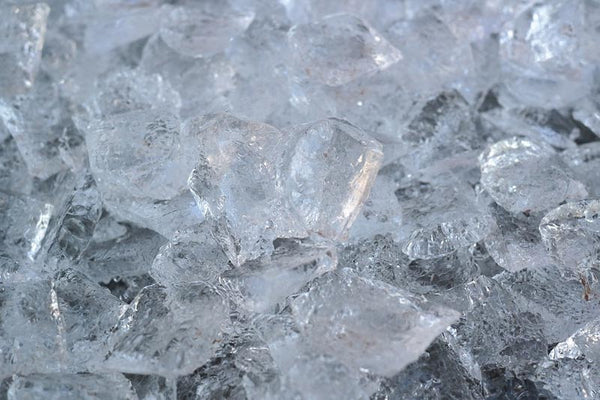How to Clean an Ice Machine

It sounds like such a simple thing – cleaning an ice machine. But in our experience, this type of process can become really stressful, and concerns can lurk in the back of a restaurant manager’s mind. Why is it important to keep your ice machine clean? Well, for one thing, the FDA maintains guidelines on ice, the same way that it does on food products. That means ice needs to be clean from a liability standpoint.
Also, the ice machine is often a front-of-the-house appliance, although that's more common in hospitalities than it is in the restaurant business. Regardless of whether your ice machine is front-of-the-house or not, though, maintaining it and keeping it clean is incredibly important. So how do you do that? This guide will help you learn more about how active kitchens maintain these important pieces of equipment.
Keep Records
First of all, like other vital parts of your restaurant operation, ice machine cleaning solution processes work better if you keep detailed records. One best practice is to keep a physical clipboard and pen in a specific place, and log all maintenance and cleaning there. The other option is to use an ERP maintenance ticketing system, if your restaurant already has that type of system in place. Either way, having the record makes it more likely that this cleaning will get done consistently on schedule.
When to Clean
The typical rule of thumb is that your ice machine should be cleaned every six months – but don't use that as an excuse to wait if you're already seeing signs of debris or contamination such as:
- Poor cycling
- Low capacity
- Dirty ice
Remember, your ice should be crystal clean and crisp, with neat edges, not cloudy and soft. Another warning sign that your machine may be in need of cleaning is changes in harvest times – cleaning an ice machine keeps it in peak condition, and producing the highest quality, as well as the most quantity of ice on a regular basis.
Protective Equipment and Sanitation
Here is another best practice for cleaning an ice machine – wear gloves. Protective equipment helps to protect the staff members cleaning the equipment, but it also helps to prevent certain kinds of contamination. The other key goal here is to apply sanitizer to food service components during the cleaning process, to make sure that at the end, everything is not only cleaned but also sanitized.
Follow Instructions
Many modern ice machines have a process that involves pressing a button, adding cleaner and running a cleaning cycle, as well as removing individual components to clean them for this type of full-service maintenance. Make sure you wait the recommended amount of time to allow cleaning solutions to work, and that you don't improperly mix materials. Proper and precise dilution is also important, so follow your machines specific manufacturer's instructions.
External Checks
In maintaining an ice machine, you’ll also want to clean the outside of the machine and check the condenser fins for dirt. When dirt and debris build up in the condenser, it impacts the performance of the cooling system over time. You'll also want to clean the filter, which is usually a pretty straightforward process.
Test Water Quality
This additional process goes a step further to make sure that the ice you're producing is composed of high-quality water. A chlorine test or chemical test shows how much of certain potentially harmful elements are in the water. You may also want to check for hard water where excessive calcium causes buildup and starts to impair equipment over time.
Clean Around the Ice Machine
Why is it important to clean the surroundings? Modern science shows that a dirty environment can introduce more contaminants into parts of the machine itself. So think about this kind of spillover effect when you're keeping your ice machine in spick-and-span condition. Of course, good cleaning and maintenance makes a difference – but restaurant equipment technology has also progressed quite a lot in the last few years. Upgrading ice machines or other equipment can help your kitchen increase productivity and efficiency, and compete in a challenging market.
For more, check out everything we offer at Chefs’ Toys, where our people have actual real-life kitchen experience. Take advantage of our detailed guides and other resources, and a wide catalog of equipment from a company that knows, and cares, about restaurant work.




















